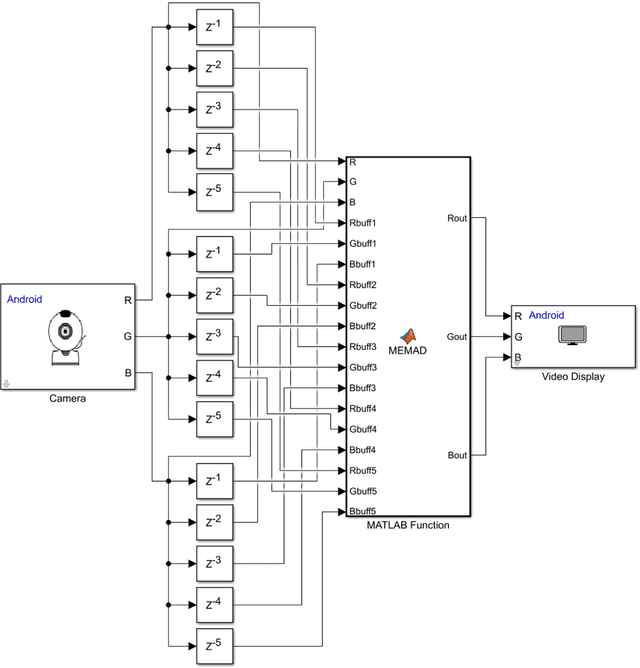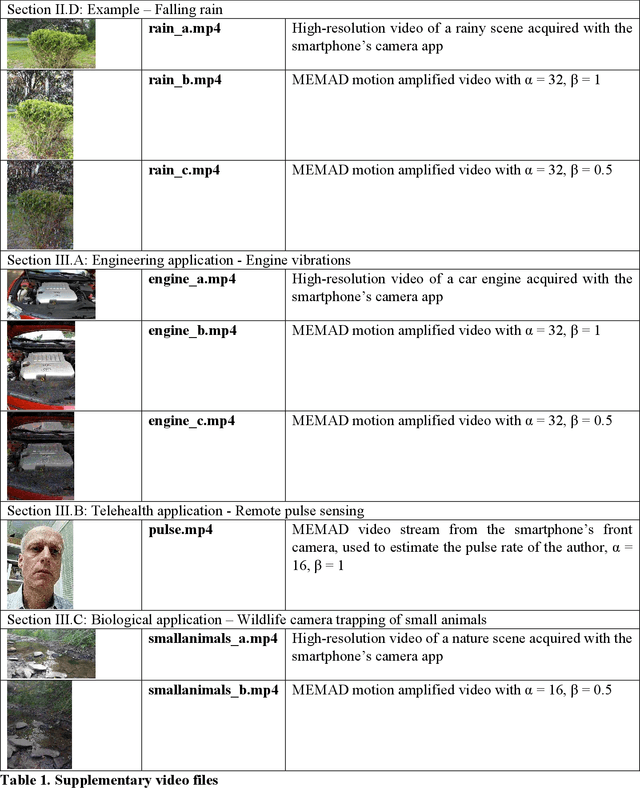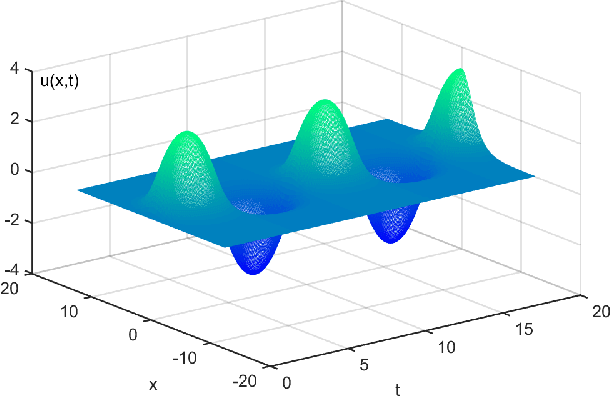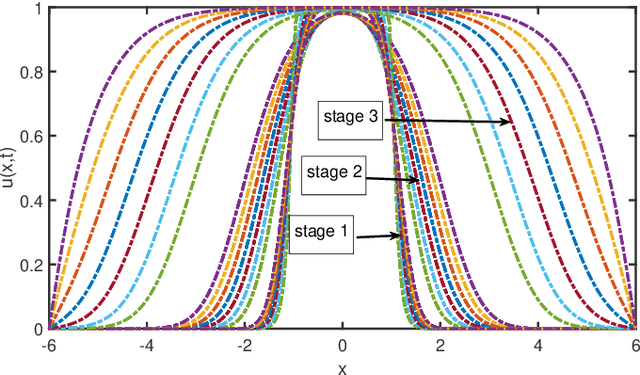Henning U. Voss
Real-time motion amplification on mobile devices
Jun 16, 2022



Abstract:A simple motion amplification algorithm suitable for real-time applications on mobile devices is presented. It is based on motion enhancement by moving average differencing (MEMAD), a temporal high-pass filter for video streams. MEMAD can amplify small moving objects or subtle motion in larger objects. It is computationally sufficiently simple to be implemented in real time on smartphones. In the specific implementation as an Android phone app, MEMAD is demonstrated on examples chosen such as to motivate applications in the engineering, biological, and medical sciences.
Machine Discovery of Partial Differential Equations from Spatiotemporal Data
Sep 15, 2019



Abstract:The study presents a general framework for discovering underlying Partial Differential Equations (PDEs) using measured spatiotemporal data. The method, called Sparse Spatiotemporal System Discovery ($\text{S}^3\text{d}$), decides which physical terms are necessary and which can be removed (because they are physically negligible in the sense that they do not affect the dynamics too much) from a pool of candidate functions. The method is built on the recent development of Sparse Bayesian Learning; which enforces the sparsity in the to-be-identified PDEs, and therefore can balance the model complexity and fitting error with theoretical guarantees. Without leveraging prior knowledge or assumptions in the discovery process, we use an automated approach to discover ten types of PDEs, including the famous Navier-Stokes and sine-Gordon equations, from simulation data alone. Moreover, we demonstrate our data-driven discovery process with the Complex Ginzburg-Landau Equation (CGLE) using data measured from a traveling-wave convection experiment. Our machine discovery approach presents solutions that has the potential to inspire, support and assist physicists for the establishment of physical laws from measured spatiotemporal data, especially in notorious fields that are often too complex to allow a straightforward establishment of physical law, such as biophysics, fluid dynamics, neuroscience or nonlinear optics.
 Add to Chrome
Add to Chrome Add to Firefox
Add to Firefox Add to Edge
Add to Edge